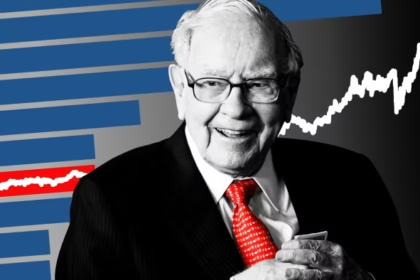Alphabet Inc., the parent company of Google, has officially crossed the $3 trillion market capitalization threshold for the first time in history, marking a monumental milestone in global finance. With this achievement, Google enters a rarefied circle of corporations — a select club with only three other members worldwide.
This surge underscores the power of big tech, the relentless investor appetite for artificial intelligence (AI), and the dominance of companies that sit at the crossroads of data, software, and cloud computing.
A Rare Club of Market Titans
Until now, only Apple, Microsoft, and Saudi Aramco had ever surpassed the $3 trillion market cap mark. Google’s entry into this group highlights its evolution from a search engine startup to one of the most influential companies on Earth.
Analysts say the milestone is not merely symbolic. It reflects a deep investor consensus that Google’s core businesses — search advertising, YouTube, cloud computing, and increasingly AI — will continue to deliver robust growth for years to come.
“Reaching $3 trillion shows Google isn’t just keeping up with its peers, it’s actively shaping the next era of the digital economy,” said a senior equity strategist at Morgan Stanley.
The AI Catalyst
While Google has long been dominant in online advertising, much of its recent market surge has been driven by investor confidence in its artificial intelligence strategy. From its Gemini AI platform to AI-powered cloud solutions and advertising optimization tools, Google has positioned itself as a leader in generative AI.
The company has invested billions into integrating AI across its ecosystem — from Google Workspace productivity tools to YouTube content recommendations — which investors view as a key driver of future revenue growth.
“Google’s AI initiatives are no longer experimental,” noted a tech analyst at Wedbush. “They’re scaling into products that touch billions of users daily, creating both efficiency and entirely new revenue streams.”
Cloud and Diversification
Google Cloud, once an underdog in the enterprise space, has become a $40 billion-plus annual revenue business and one of the company’s fastest-growing units. In addition, YouTube remains a global media powerhouse, pulling in both advertising and subscription revenue while expanding into short-form video to compete with TikTok.
This diversification beyond search advertising has reassured investors that Google can sustain growth even as the digital ad industry matures.
The Stock Market Context
Google’s climb past $3 trillion comes amid a broader rally in U.S. equities, with the tech-heavy Nasdaq Composite hitting new highs. Investors are betting that mega-cap tech companies will continue to dominate global markets, particularly as AI, cloud computing, and data-driven business models reshape industries.
For Alphabet, the stock price has surged more than 50% over the past year, driven by both earnings beats and a flood of capital flowing into the AI sector.
Strategic Moves Ahead
Alphabet CEO Sundar Pichai has emphasized a strategy of “AI-first transformation,” combining aggressive innovation with disciplined financial management. Analysts expect the company to announce new partnerships, acquisitions, and product launches designed to reinforce its dominance in search, cloud, and enterprise AI.
Meanwhile, investors are also watching how Google navigates regulatory challenges. From antitrust cases in the U.S. to digital services oversight in Europe, Alphabet faces scrutiny that could reshape its operations. Still, investors appear confident that the company’s scale and technological leadership will allow it to adapt.
A Defining Moment for Big Tech
The $3 trillion milestone is more than just a number. It cements Google as one of the few companies in history to reach such immense valuation, alongside Apple, Microsoft, and Saudi Aramco.
It also raises questions about market concentration, as a handful of tech giants now command a disproportionate share of global equity value. Together, these firms represent trillions in wealth, wield influence over global markets, and set the pace for innovation in AI, energy, and technology infrastructure.
Looking Ahead
As Google celebrates its place among the world’s most valuable companies, the focus will shift to whether it can maintain momentum. Investors expect Google to continue building out its AI products, expanding its cloud business, and defending its ad empire against new competitors.
If Alphabet can sustain its trajectory, some analysts suggest it may soon challenge Apple and Microsoft for the title of world’s most valuable company.
For now, Google’s entry into the $3 trillion club is a testament to the enduring power of innovation, scale, and adaptability — qualities that have defined the company’s journey from a garage startup in 1998 to one of the most powerful institutions in the global economy today.







